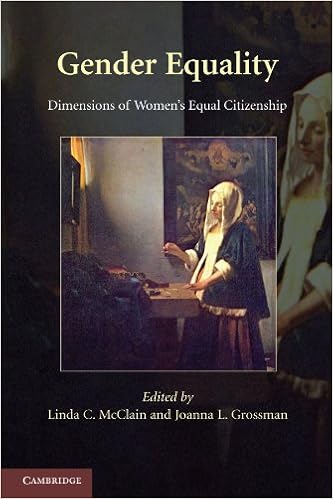 For four decades, litigants have been posing the same question to the Supreme Court: Do fathers have the same right as mothers to transmit American citizenship to their children? The Supreme Court has been asked repeatedly over four decades to answer some version of the same question: do fathers have the same right as mothers to pass on American citizenship to their children? The answer has always been “no,” with explanations rooted in the basest type of sexism that the Court decries in other contexts. But in a recent ruling, in Sessions v. Morales-Santana, the Court said “yes,” although it stopped short of providing a remedy that for the unconstitutional harm it identified. This case illustrates how the implications of parentage can differ by context—and why recognition of a legal parent-child relationship matters deeply.
For four decades, litigants have been posing the same question to the Supreme Court: Do fathers have the same right as mothers to transmit American citizenship to their children? The Supreme Court has been asked repeatedly over four decades to answer some version of the same question: do fathers have the same right as mothers to pass on American citizenship to their children? The answer has always been “no,” with explanations rooted in the basest type of sexism that the Court decries in other contexts. But in a recent ruling, in Sessions v. Morales-Santana, the Court said “yes,” although it stopped short of providing a remedy that for the unconstitutional harm it identified. This case illustrates how the implications of parentage can differ by context—and why recognition of a legal parent-child relationship matters deeply.
Luis Ramón Morales-Santana was born in the Dominican Republic but has lived in the United States since he was 13. Facing deportation, he asserted U.S. citizenship at birth because his biological father was a U.S. citizen. Babies born in the U.S. acquire citizenship as a constitutional birthright (jus solid), but those born abroad acquire it from birth only if they have at least one citizen-parent who meets the statutory criteria for transmitting it (jus sanguine). Luis’s father was an American citizen, and there is no question that he was both a legally acknowledged and functional father; nonetheless, he could not transmit citizenship to his son. He moved to the Dominican Republic for work just 20 days shy of his nineteenth birthday, but the law at the time required that he be physically present in the U.S. for ten years, five of which had to occur after his fourteenth birthday. He was in the U.S. for 19 years, but those 20 days would deprive his son, born forty-three years later, of American citizenship. Had his mother been the American citizen, however, the outcome would have been different. Although the presence requirements have since been shortened for unwed fathers to five years, only two of which must be after the fourteenth birthday, unwed mothers can transmit citizenship as long as they have been physically present for one year at any time prior to a child’s birth. (A fuller explanation of the statutory criteria for citizenship-by-descent can be found in a longer piece I’ve written here.)






